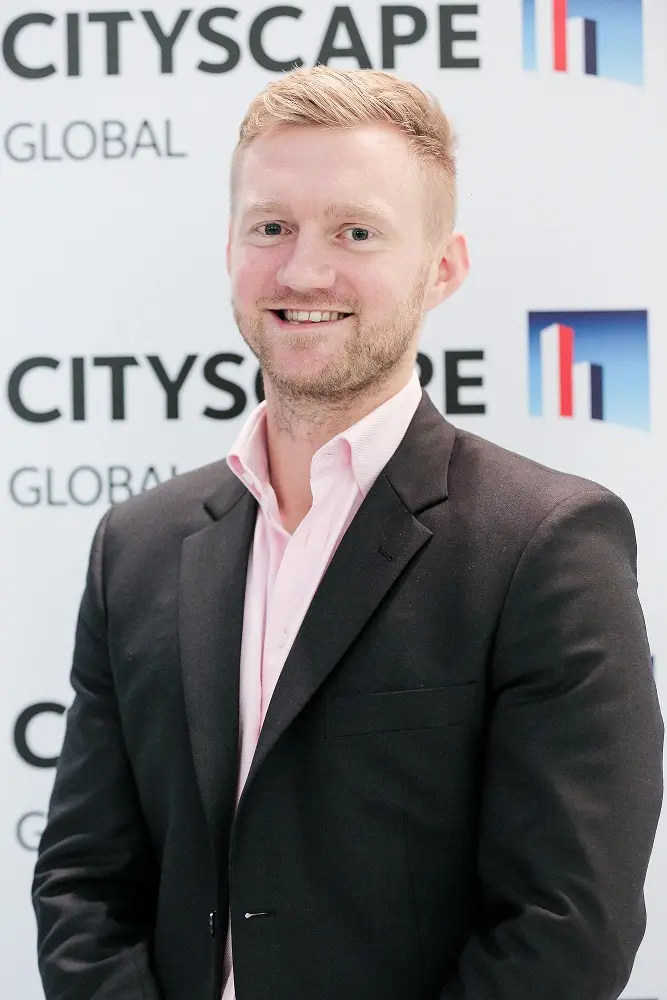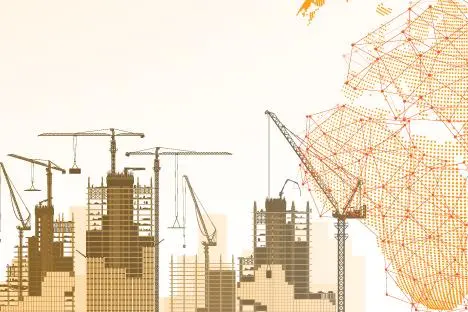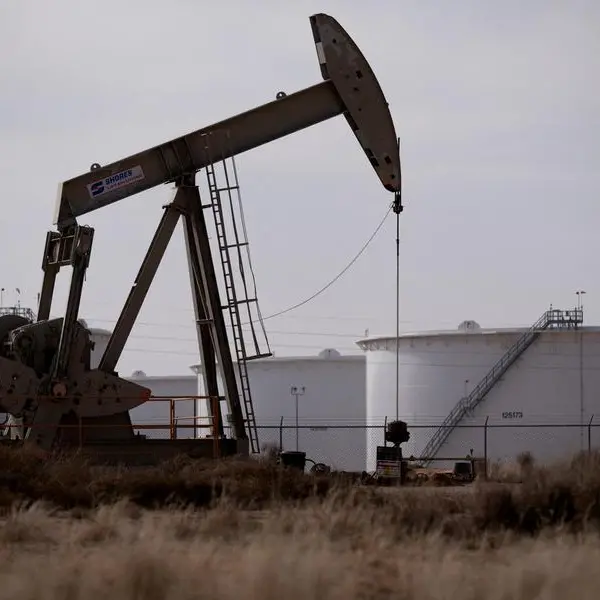PHOTO
The organisers of the annual Cityscape Global real estate exhibition in Dubai said that they have increased the size of this year’s show by 1,000 square metres on the back of improved demand from exhibitors.
Despite the fact that the UAE’s biggest developer, Emaar Properties, decided to withdraw from the exhibition this year, citing its decision to move its “complete marketing strategy on digital platforms”, exhibition organiser Informa is increasing the amount of space it is renting at the Dubai World Trade Centre complex.
Last year’s show braved up to a decrease in market size, owing to tough macroeconomic conditions in a climate of low oil prices, liquidity challenges and reports of slowing revenues in the construction industry. The backlog of work for the construction market in the United Arab Emirates (UAE) shrunk by around $17 billion in 2016, according to Faithful+Gould’s Construction Intelligence report in July.
The 2016 Dubai edition of Cityscape spanned approximately 41,000 square metres, with a “small percentage” of companies not renewing their space commitments, organisers told Thomson Reuters Projects last year, crediting the withdrawals to “static growth” in a market that has experienced a decline.
But sentiment has shifted for the better, according to Cityscape Global’s exhibition director Tom Rhodes, as Dubai’s real estate market has experienced a period of stability over the last 12 months, adjusting to economic factors such as low oil prices.
“With close to 300 exhibitors this year, we have increased in hall space… and will cover over 42,000 square metres,” he told Thomson Reuters Projects in an email interview on Sunday.
“We have seen the UAE, as well as other countries in the region, increasing their efforts to shift away from their dependence on oil revenues, which now constitute for around 2 percent of Dubai’s economy,” he said. “This means the ‘new normal’ price for oil – sitting at around $50 per barrel – will have a reduced effect on the real estate market when compared to oil-dependent economies in the region.”


Cityscape Global exhibitions director, Tom Rhodes. Image supplied by Informa Middle East
Exhibitors including Azizi Developments, Binghatti Developers and Dubai South have increased stand space and branding around the venue this year, Rhodes said. Sharjah-based Arada, Abu Dhabi’s Aldar, and Dubai-based Oriental Pearls are among the new exhibitors taking part this year, he added. New companies will also feature as part of the Bahrain, and Pakistan pavilions as well as the Korean Tourism Organisation, representing around 20 companies from Korea.
Sentiment shifts upward in lead up to 2020
“The Dubai real estate market is showing signs of stability after a period of decline,” Rhodes said, pointing to strong growth figures released by the Dubai Land Department.
The Dubai Land Department said in July that despite economic pressures, the total value of real estate transactions for the first six months of the year was 132 billion UAE dirhams – an increase of 26 percent compared, to transactions for the same period in 2016.
“There have been many contributing factors to the attractiveness and maturity of the market, including population growth, the introduction of authoritative rules, and the high level of construction in preparation for Expo 2020,” Rhodes said.
“Many investors identify Expo 2020 as the key driver for the local market pushing the market forward,” he added.
Last year, Expo 2020 Dubai awarded more than 1,200 contracts, worth $544.5 million, with a further 47 construction contracts worth $3 billion to be awarded during 2017.
In its UAE Property report on Wednesday, real estate consultancy Cluttons said it expects 2018 to be a year of “stability and marginal growth”, with house prices expected to inch upwards next year.
“It is still our view that values will end [2017] 4-5 percent down on 2016, on average,” the report said. “2018 is likely to see values starting to show their first positive, albeit weak, growth in over three years as the ‘Expo effect’ starts to influence demand levels and overall sentiment,” it added.
Cluttons also said that while the short-term prospects for the market appear relatively subdued, Dubai’s rental market fortunes remain tied to the looming 2020 World Expo.
“At this stage, the mega-event is one of the primary upside risks to our outlook, especially as we expect it to drive up the rate of job creation and tenant demand, but this is not expected for another one to two quarters at least,” the report stated.
Another study published on Wednesday by Dubai-based property consultancy Core Savills said that investor sentiment among buyers in the UAE remains fairly weak.
Its latest survey found that only 34 percent of respondents felt Dubai’s property market has displayed signs of recovery this year – down from 50 percent last year. It also said that more than two-thirds (67 percent) felt that the residential market would be oversupplied by Expo 2020.
It said that among potential buyers, price was stated as the most important factor in their decision to buy – cited by 80 percent of respondents. Location was the second-most important factor, followed by developer reputation.
Yet even if some buyers in the UAE may need convincing, Rhodes said that he has noted an increase of investors from different markets, including Chinese investors as well as those from Europe, following the impact of Brexit.
“Juwai.com, a top Chinese real estate website, for example recorded an increase in enquiries in UAE properties – over 80 percent between 2015 and 2016,” he said.
“As geopolitical events continue in Europe and beyond, the UAE could be seen as a more and more attractive market for a safe investment from foreign markets.”
Onsite sales to drive growth
Meanwhile, the decision to allow onsite sales at this year’s show is also expected to have a positive impact.
“Approximately 30 percent of last year’s attendees were homebuyers and investors, while 68 percent of visitors confirmed they intended to make a purchase or conduct business with a company that they met during the exhibition,” Rhodes said. “This shows the positive prospects that could result in this decision.”
He added that the success of onsite sales at Cityscape Abu Dhabi for the last three editions had let to an increase in return on investment for many local developers, including Aldar, which sold a significant portion of its new The Bridges development in April, generating a total sales value of 400 million UAE dirhams.
Dubai-based Damac Properties said in a statement last month that the decision to allow onsite sales at this year’s Cityscape Global is a “positive step to help boost property sector growth”. The company is expected to announce several new projects, as well as a number of new villa concepts targeting families and end users.
Rhodes added that he expects exhibitors to woo visitors with various special officers, and that both developers and brokers would have all the documentation required to kick off the purchasing process at the show.
“Leading developers from all emirates are preparing to launch new projects during the event, with attractive payment plans appealing to end-users,” he added.
Dubai-based master developer Nakheel said this week that it plans to launch six new residential, retail and hospitality developments at four of its communities in Dubai – including its flagship master development, Palm Jumeirah. The new projects are collectively worth more than 3.2 billion UAE dirhams.
The Dubai Land Department said in August that 68 new real estate projects were registered during the first half of 2017, representing a total value of 21 billion UAE dirhams.
The 16th edition of Cityscape Abu Dhabi takes place on September 11 - 13 at the Dubai World Trade Centre.
For more data, analytics, tools and news on projects in the Middle East visit the Thomson Reuters Projects portal
© Zawya 2017





















